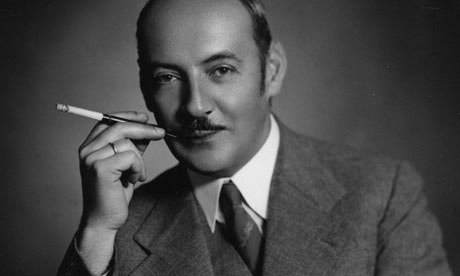The lesser-known brother of Nazi dignitary Hermann Goering was also a fierce opponent of the Third Reich. Seventy years later, he steps out of the shadows and into the limelight as his life’s journey becomes the subject of a documentary film in competition at the 25th International History Film Festival, in Pessac (South-West France). "The Albert Goering File," by French director Véronique Lhorme, was co-produced by Belgian radio and television broadcaster RTBF.
Nicknamed "the black sheep of the family" by his older brother Hermann, who always covered for him, he appears to have been a long-time dissident, from the beginning, in 1933, to the collapse of the Nazi regime, in 1945. Nuremberg, September 1945: since their surrender to the US Army on May 10th, two days after the German capitulation, both Albert, 51, and his brother Hermann, have been held in solitary confinement. In the months leading up to the Nuremberg Trials, he must explain Hermann’s role as the "Führer"’s designated successor.
From November 1945 to October 1946, Hermann appeared before judges representing the Allied Powers (USA, UK, ex-USSR, France). On the eve of his execution, on October 15th, 1946, he committed suicide.
Thanks to the testimonies and official records kept at the US National Archives in Washington, we have a few clues about Albert Goering’s complex and ambiguous personality: he was a multilingual socialite and a music lover, known as a man of cinema in Austria and Italy, and as a businessman in Czechoslovakia.
A friend of his, Ernst Neubach, a Jewish film producer, recalls how outraged he felt when he learnt that his brother had joined the Nazi Party, back in 1923: "Hermann has teamed up with that son-of-a **** Hitler." The two brothers didn’t speak to each other for next 10 years.
Albert was summoned by the Americans to explain his conduct during the war. To defend himself, he drew up a list of 34 names, again backed up by testimonials from descendants of Jews or resistant fighters that he had saved.
Herbert, son of Michael Hohensinn, recalls how Albert got his father released from Dachau concentration camp, near Munich (southern Germany). Georg Pilzer, son of Oskar, is greatly moved, as well, when relating his father’s rescue from the Nazis, 70 years later: "Albert was a remarkable man, and if I had been able to see him again, I would have thanked him from the bottom of my heart."
In 1938, while Hermann was busy "Aryanising" the recently annexed Austria, Albert helped other Jews leave this former host country, where he had himself sought refuge from the "Brown Plague". Later on, he used his influence and the impunity attached to his name to help Jan Moravek to safety, an important figure of resistance in Czechoslovakia, where he had himself joined the management team of the Skoda factory, placed under the direct authority of Reichsmarschall Goering.
Véronique Lhorme explains that the Commission for the Designation of the Righteous Among the Nations at Yad Vashem, in Jerusalem, has been examining the "Albert Goering File" since 2012. Up until now, it has been unable to establish any of the criteria that would define him as "Righteous": "truly risking one’s life" and putting one’s life "in danger" to save others.
(Source: Belga)

